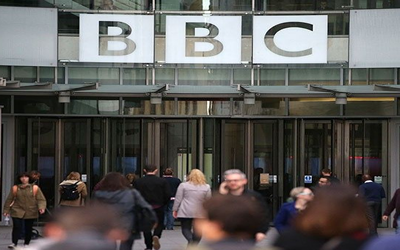UK FREEZES BBC FUNDING FOR TWO YEARS
By: Emmanuel Adefeso ESQ
The UK government has announced a freeze of the BBC licence fee, arguing a new funding model was needed to ease cost of living pressures and reflect a transformed media landscape.
In explaining the reason for the announcement, the Culture Secretary Nadine Dorries told parliament that the £159 ($217, 190 euros) annual fee, paid by every television set owner in the country, would be fixed for the next two years. After that it will rise in line with inflation for four years. She also said that the rising annual cost of the compulsory charge was hurting cash-strapped families. Thus, the long-term future of the corporation should not depend on a system which criminalises non-payers, she added.
But opposition parties linked the move to efforts to keep Prime Minister Boris Johnson in a job, by offering “red meat” to BBC critics, due to anger at lockdown-breaking parties at Downing Street. Similarly, Labour media spokeswoman Lucy Powell said monthly payments for the licence fee were small change compared to proposed Tory annual tax increases and soaring energy bills totaling thousands of pounds.
Indeed, the BBC has come under increasing criticism from right-wingers since Britain’s divisive Brexit referendum in 2016 for alleged political bias, and pushing a “woke”, London-centric liberal agenda. But the public service broadcaster, which this year marks its 100th anniversary and has editorial independence from government, has faced similar accusations from the political left. What is the licence fee? The TV licence is a flat fee of £159 a year (£53.50 for black and white TV sets). By law, each household in the UK has to pay the licence fee (with some exemptions) if they:
- watch or record programmes as they’re being shown on any TV channel
- watch or stream programmes live on any online TV service – for instance, All 4, YouTube, or Amazon Prime Video
- download or watch any BBC programmes on BBC iPlayer.
The rules apply to any device on which a programme is viewed, including a TV, desktop or laptop computer, mobile phone, tablet or set-top box. So, for example, someone watching a live football match on a non-BBC channel via a laptop, would still need to pay. If you do not pay the licence fee, you can be taken to court. In 2019, there were 122,603 prosecutions and 114,531 convictions for TV licence evasion.
How this freezing of the BBC licence would turn out, would be keenly watched in the next two years.
Disclaimer: This news update is intended only to provide general information and does not by itself constitute or serve as legal advice. For further information, we are available to provide detailed legal advice. For more information contact us on info@asalawpractice.org or call 0908 482 0000, 0806 749 8777

